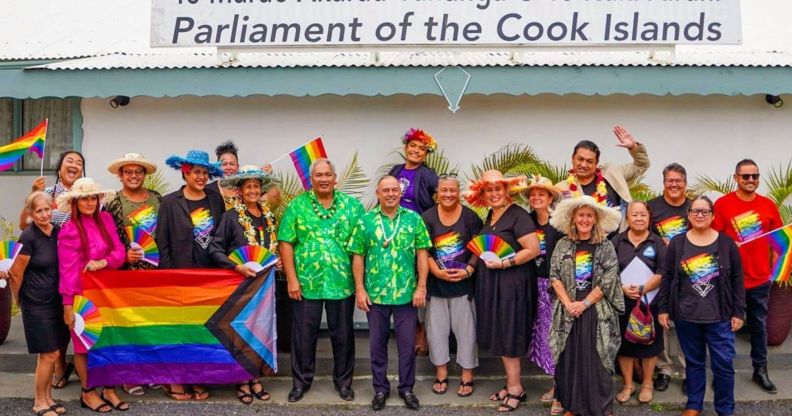Cook Islands finally decriminalises homosexuality: ‘Now we are truly equal’

The Cook Islands have become the latest country to decriminalise homosexuality. (Facebook)
LGBTQ+ residents in the Cook Islands are celebrating after the country became the latest part of the world to decriminalise homosexuality.
The South Pacific island state’s parliament voted on Friday (14 April) to remove a law which prohibited so-called “indecent acts between males” in what has been described as a “historic day” for LGBTQ+ people.
The law, which was never actually enforced, saw those in violation facing a potential prison sentence of up to 10 years under the 1969 Crimes Act.
The outdated law was nullified and removed by the newly introduced Crimes Amendment Bill, which will come into effect on 1 June.
Additionally, a note within the bill said it was considered due to a growing acceptance of LGBTQ+ people.
It will also provide protections for victims of sexual abuse, assault, rape, and other crimes.
Prime minister Mark Brown said he was pleased that parliament could agree to “stomp out discrimination of the LGBT community” in a tweet shortly following the decision.
The leader of the Cook Islands Party said he was dedicated to upholding “our Constitutional commitments to human rights.”
The bill saw support across Cook Island’s major political parties, who shared a cross-partisan belief that the law needed to be updated to reflect the island’s view on LGBTQ+ rights.
Pride Cook Island president Karla Eggelton also commended parliament for the historic decision, telling New Zealand publication RNZ that it was a long time coming.
“We are so grateful for all the people and all the organisations throughout our community who have been working tirelessly to make this happen,” she said.
“I think the message that we want to tell people is – hug your friend, hug your neighbour, hug your niece, hug your daughter, because now we are truly equal.”
A draft of the bill was introduced in 2017 but faced multiple roadblocks from politicians voicing vaguely held “concerns” over decriminalising homosexuality.
It eventually passed through blockades after parliament faced criticisms from pro-LGBTQ+ activists in 2019 for not upholding its promise to decriminalise homosexuality.
While homosexuality will be legal following the enactment of the law, same-sex marriage is still outlawed by the Marriage Amendment Act 2000.
Currently, there are 66 countries in the world that criminalise private, consensual same-sex activity, eleven of which use the death penalty as punishment.
The most recent country to legalise homosexual activity was Barbados in December 2022, when laws against “gross indecency” were deemed unconstitutional and removed from the Sexual Offences Act.
How did this story make you feel?

